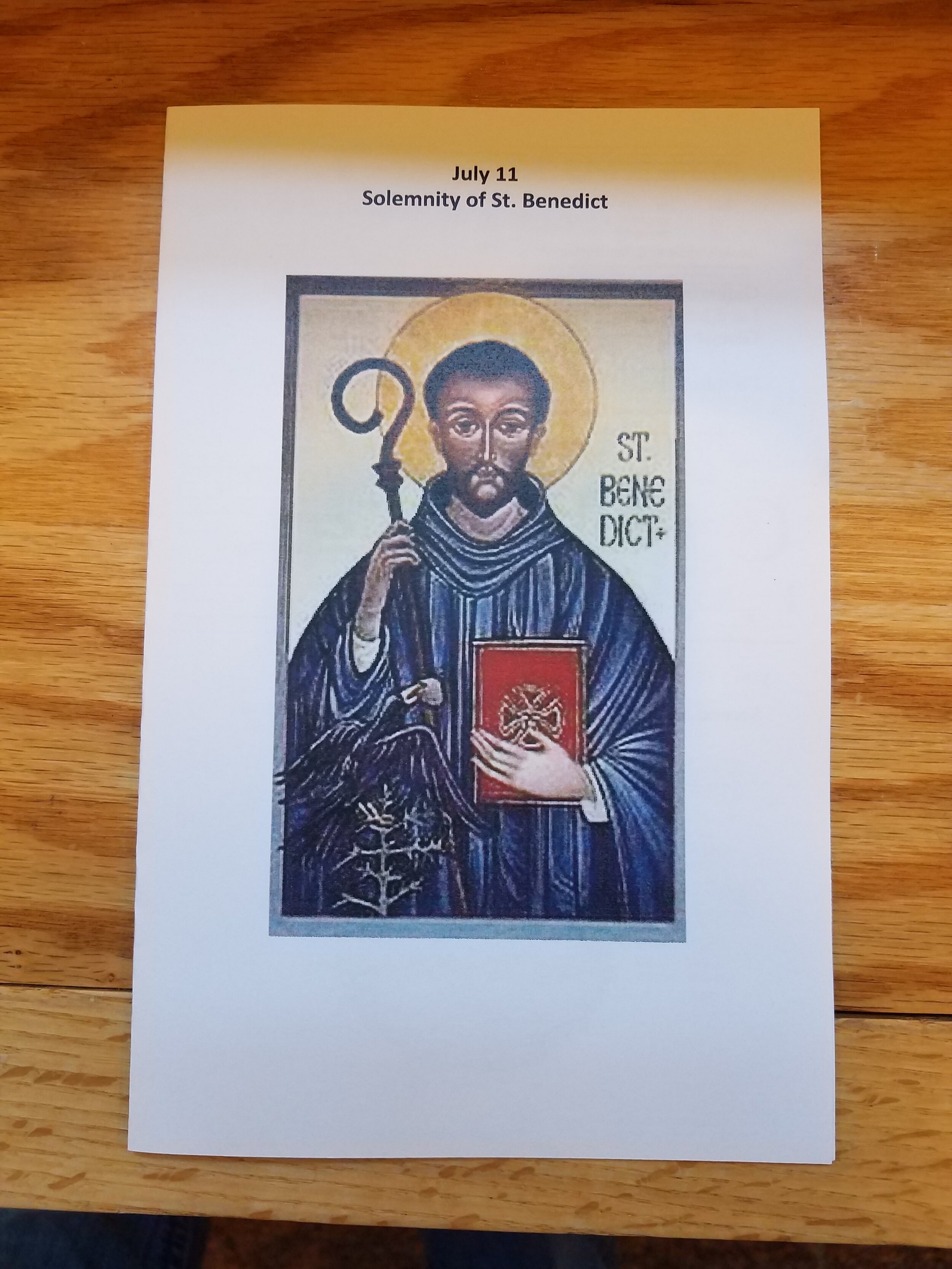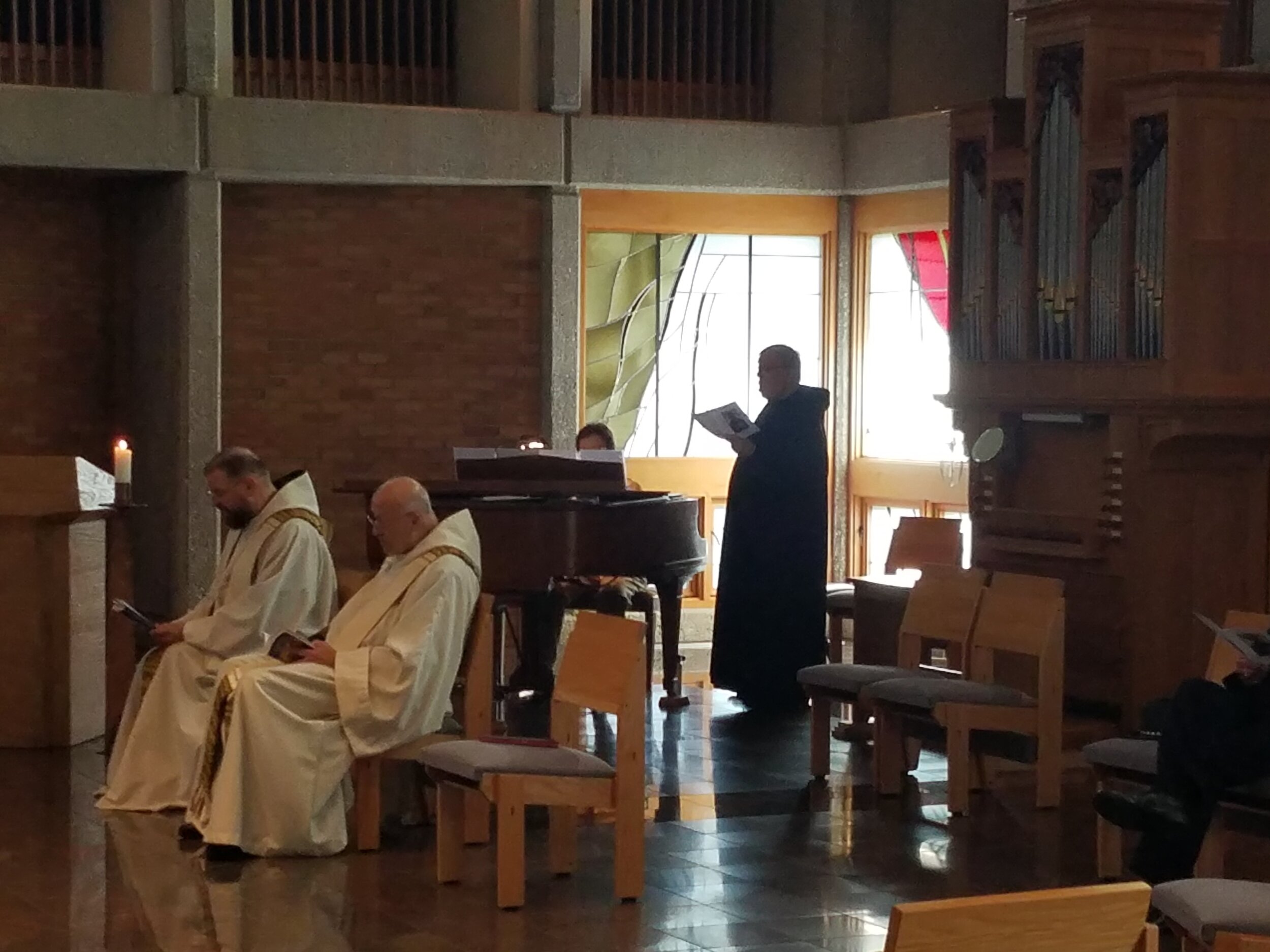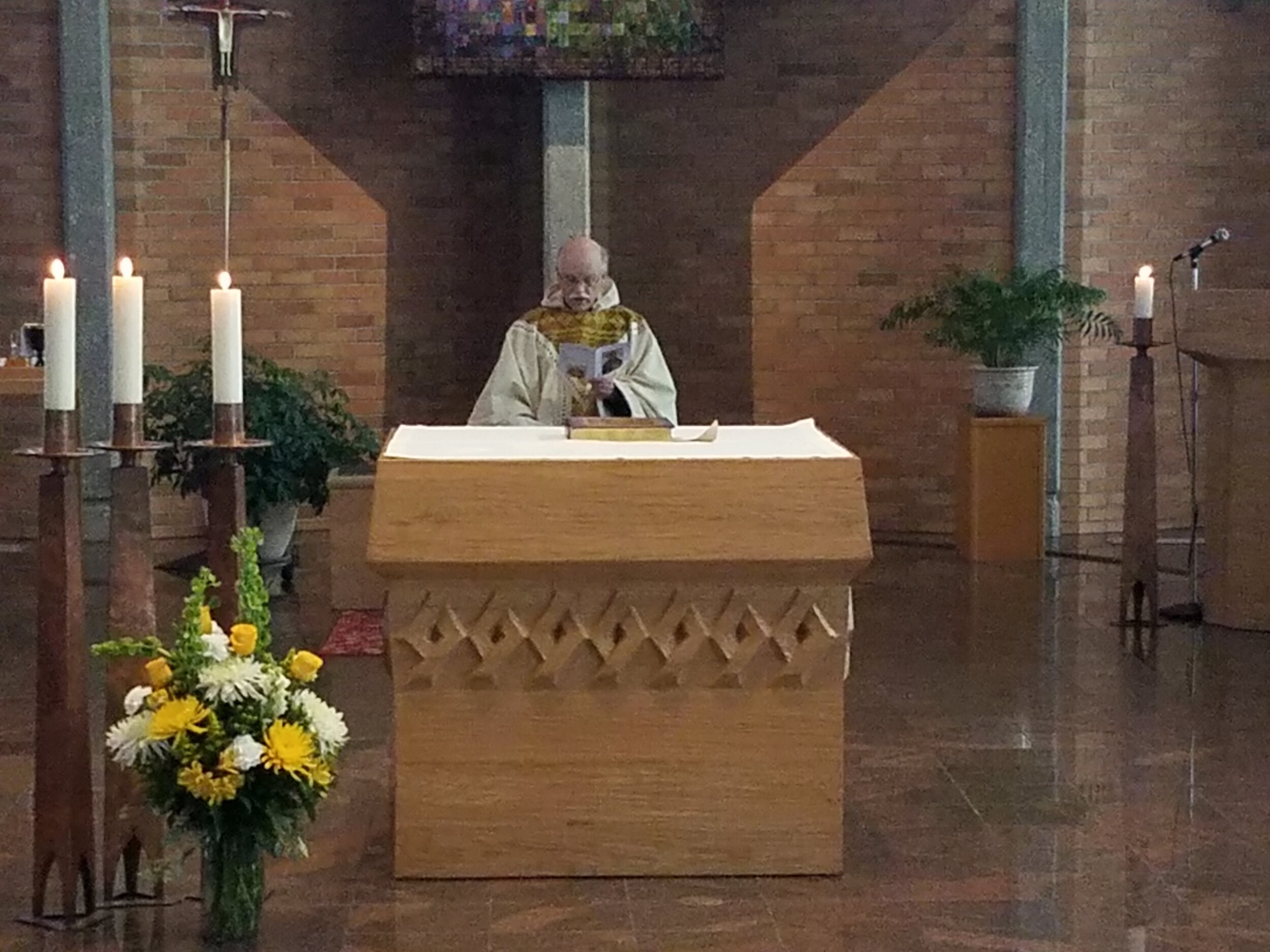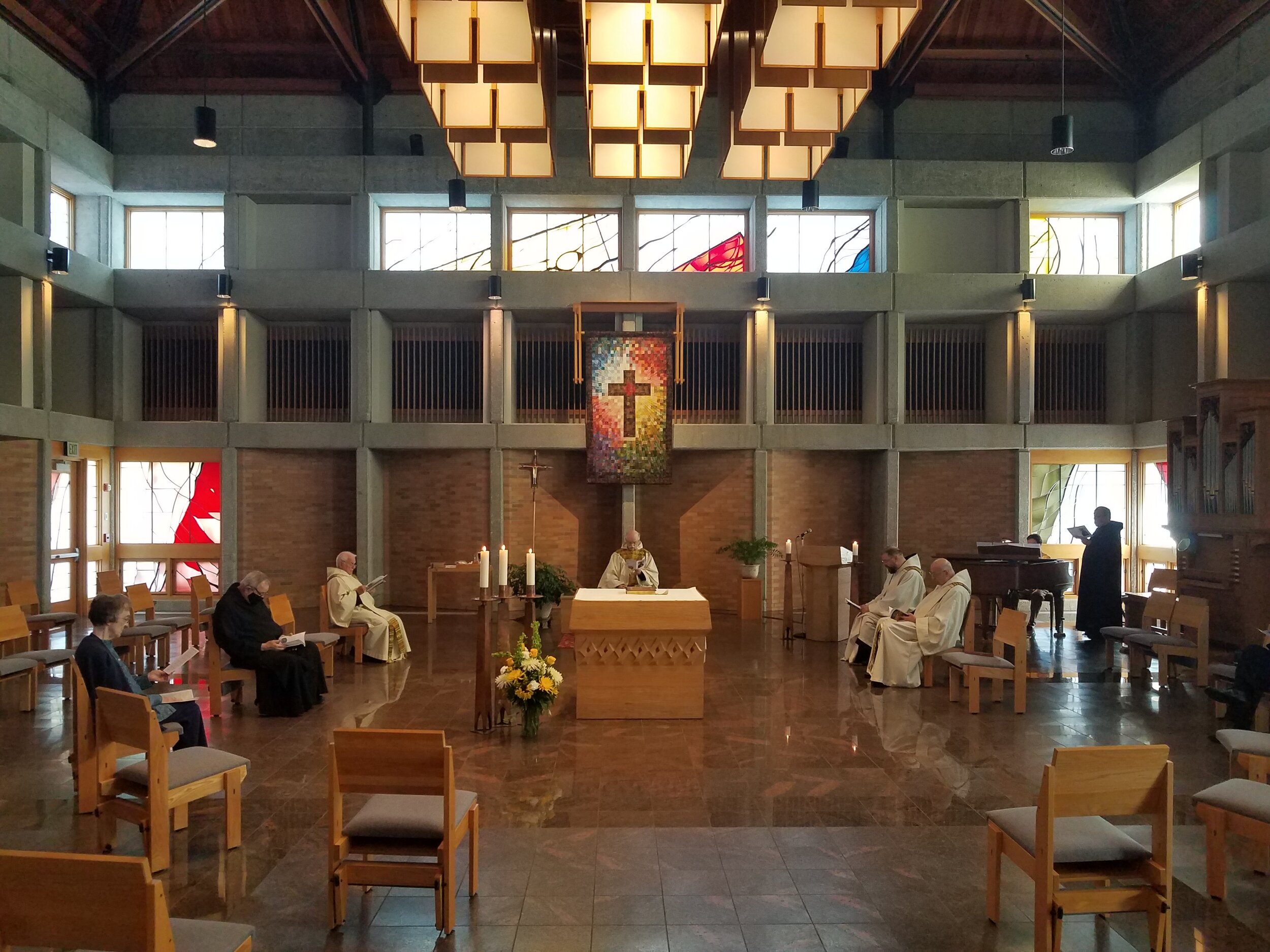Proverbs 2:1-9
Ephesians 4:1-6
Luke 22:24-27
The city of Rome with its Empire had finally come to an end three years before Benedict was born. The Rome of Benedict’s day was a broken city. Its glory had faded. The city had been attacked a number of times by invaders. Foreigners were at the helm of leadership. When Benedict went there to study, he found decadence, a low moral life. He abandoned his pursuit of knowledge that he hoped to find there. He left and went off to a lonely place. Perhaps it looks like he chose to escape. But by grace, even in his youth, he realized there was another way, another path to the truth of life. Even in his youth, he was led to the realization that there was wisdom of another kind than what Rome could offer. He went to search for that wisdom. The voice that we just heard in the book of Proverbs, the voice of the wise Master, echoed in him. He followed it; he listened to it and learned the ways of wisdom that come from God. He went to the cave and the craggy mountainside to be still with himself so that truth could be born in him.
Benedict went to let that voice of wisdom claim him. He went to serve that voice that would keep him in the way of honesty, truth, humility and patience. He spent time learning the way of the Lord. But he was not called to be a hermit or a solitary. His response to the breakdown of the world, which surrounded him, was not to be just a withdrawal and a search for a safe place. Benedict found that he was called to lead and to serve others. He found that his time of solitude led him to a way of wisdom that would bind others together. His experience of the wisdom of God led him to lay out a way of life. It was not a path for others to follow so that they could escape from the moral corruption of society or its political chaos. No! The wisdom he heard in the silence was a deep knowledge about how to live genuinely. The wisdom that found a home in him gave shape to a way of living together in the heart of a fallen, broken world. Benedict’s listening to wisdom evolved into a treasure that he served up for others. The silver and gold he found with wisdom, we and the church have come to call his Rule: A guide for those who wish to live together the way of the Gospel. The gift that Benedict came to share with us was the gift of how to organize and live in a community. This was the Gospel response he offered to the chaotic world of his day, perhaps a world not unlike the chaotic and transitional world we find ourselves in.
Benedict has shared with us the fruit of his prayer and his life long experience as an abba, a father leading others who wish to live in community with Christ as the living center. His wisdom is the gift of forming a society whose rhythm, manner of life, values and priorities may definitely be different from the world around it. And yet it can speak to that world, to our world. It can say that it is possible to live in a less chaotic, less pressurized and stressful manner. It can speak to society at large of a balanced life where prayer, reading and work are the breath that both humanizes and divinizes. Benedict’s way offers a vision where the poor and the rich, the colored and the not so colored, can be with one another in a peaceful way. Benedict reminds us that the wisdom he encountered said that God had no favorites. For God there was no privileged party. Rather Benedict says we are all one in Christ. There is a center and that center for those who claim to know him is none other than Christ, the living wisdom, the living way of the Father. There may indeed be an unsettled and unsettling world, but Benedict places in our midst a person around whom we can gather, the living Christ.
And just what does this living Christ look like? What picture of him does Benedict draw? In his pondering of the Gospel and through his own experience, Benedict came to be convinced that the world as he knew it did not provide the model of leadership that could attract and hold people together. Instead, he found in the Gospels the picture, model and the method of leadership for the community. He turned to Christ the Servant.
He tells us that he is establishing a school of the Lord’s service. Service is the key word. An abba who is a servant and a community where members learn to serve each other: such is the picture we have from the Gospel of Luke today. Jesus asks the rhetorical question of his disciples: who is greater the one sitting at the table or the one serving the food? All knew the answer. Yet Jesus identifies himself with the server. In his day, the server may frequently have been a slave. This Jesus says is where you start to build a community, a society, a culture that is truly human. We are to be with each other as servants to the master. No one is the master except Christ and yet all are to be treated as though they were the masters. For we are to wash each other’s feet. Here Benedict and the Gospel proclaim that power, authority and control can turn out to be nothing but self-seeking. The Gospel way of life is, as Benedict says, different from the world’s way.
Benedict did not outline a way of life and give us model for making it happen so as to conquer the world. Benedict wants to set up a process that would supply good energy in the world. Benedictines might be well-known in some circles for preserving culture and the best in culture. That is a bit ironic. Benedict wasn’t really about preserving, he was about creating a culture and a world where human beings came first. His way of gospel living has the human person at heart. He wanted to place honor and respect between everyone; he wanted his communities to learn a language the builds up, affirms and forgives. He called us to patience with our vulnerabilities, not denying or avoid them but embracing them as the Christ did. In short, he appealed to people who were looking for an authentic life and seeking peace. In the end, all he wanted us to be was church wherever we are.
We are gathered now at the table of the Eucharist. Christ is with us and once more he will serve us with his very self. He is going to serve us with his love. When you and I partake of what our servant Christ offers, we are saying yes: This is our way of life too. We are simply in a school of life learning how to place others’ needs ahead of ours and thus be children of the one Father who is over all and through all and in all.
~Prior, Fr. Joel Macul, OSB




